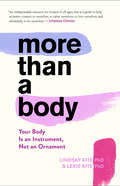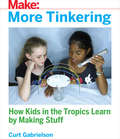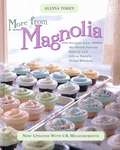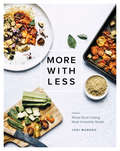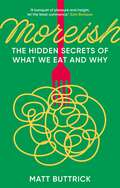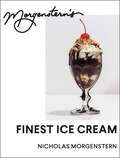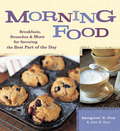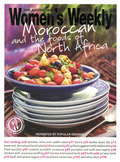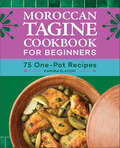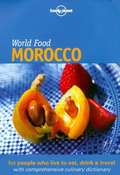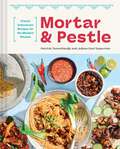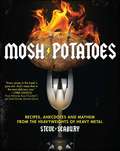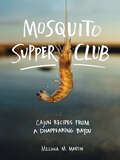- Table View
- List View
More Than a Body: Your Body Is an Instrument, Not an Ornament
by Dr. Lexie Kite Dr. Lindsay Kite"An indispensable resource for women of all ages, this is a guide to help us better connect to ourselves, to value ourselves, to love ourselves, and ultimately, to be ourselves."—Chelsea ClintonPositive body image isn&’t believing your body looks good; it is knowing your body is good, regardless of how it looks. How do you feel about your body?Have you ever stayed home from a social activity or other opportunity because of concern about how you looked?Have you ever passed judgment on someone because of how they looked or dressed?Have you ever had difficulty concentrating on a task because you were self-conscious about your appearance? Our beauty-obsessed world perpetuates the idea that happiness, health, and ability to be loved are dependent on how we look, but authors Lindsay and Lexie Kite offer an alternative vision. With insights drawn from their extensive body image research, Lindsay and Lexie—PhDs and founders of the nonprofit Beauty Redefined (and also twin sisters!)—lay out an action plan that arms you with the skills you need to reconnect with your whole self and free yourself from the constraints of self-objectification. From media consumption to health and fitness to self-reflection and self-compassion, Lindsay and Lexie share powerful and practical advice that goes beyond &“body positivity&” to help readers develop body image resilience—all while cutting through the empty promises sold by media, advertisers, and the beauty and weight-loss industries. In the process, they show how facing your feelings of body shame or embarrassment can become a catalyst for personal growth.
More Tinkering: How Kids in the Tropics Learn by Making Stuff
by Curt GabrielsonTinkering is a way of learning through hands-on activity -- experimenting with materials and devices to see how they work, taking things apart, making small changes and improvements, exploring and inventing. Tinkering may seem like a form of play -- and it is -- but it is also a powerful way of discovering truths about science, engineering, and math. With this book, Curt Gabrielson follows up on his best-seller Tinkering: Kids Learn by Making Stuff with this all-new volume that features more than three dozen fun and educational tinkering projects based on his years of working with kids in the tropical island nation of Timor-Leste. Step-by-step instructions accompanied by full-color photos take you through a range of enjoyable projects that explore life sciences, physics, chemistry, earth sciences, and mathematics. You'll discover how math is used to make baskets, how fungi create fermentation, how electricity can make a magnet, how the greenhouse effect creates warming, and much more. The author also enlivens his latest batch of tinkering projects with colorful tales of his experiences in the tropic and the lives of the people he' s met there.Inside you'll find:Clear directions for making simple projects and doing activities that teach science, mathematics and engineeringProjects rooted in day to day life and experience in a small, developing nation in the Asian tropicsFull-color photographs throughoutExplicit connections to standard STEAM concepts, K-12Activities doable with less than $5 worth of common materialsThis book is perfect for parents, teachers, and students with an interest in hands-on, tinkering-based science and mathematics education, whether in traditional schools or in home-schooling situations. It will also be of interest to anyone who wants to learn more about developing nations, the culture and unique history of Timor-Leste, tropical nations or Asian cultures, with specific links to Indonesia, Portugal, or Australia.
More Top Secret Recipes: More Fabulous Kitchen Clones of America's Favorite Brand-Name Foods
by Todd WilburNabisco Oreo Cookies. . . J&J Super Pretzels. . . Dunkin' Donuts. . . Little Caesar's Crazy Bread. . . These are some of America's greatest food inventions. Now, thanks to intrepid kitchen sleuth Todd Wilbur, you can make home versions of over 50 more of your favorite foods. All of them are shockingly easy to prepare with ingredients from your local supermarket! Wilbur's fabulous clones leave out the preservatives and include suggestions for making high-cholesterol dishes lower in fat without changing the tastes we all love. Included, too, are the fascinating origins of each product; Todd Wilbur's own amazing kitchen adventures, narrow escapes, and near-death experiences; and even his learned-it-the-hard-way cooking tips. .
More Veggies Please!: Easy Kid-Approved Meals and Family-Friendly Comfort Foods with Surprising Veggie Twists
by Nikki DinkiNATIONAL INDIE EXCELLENCE AWARDS FINALIST — COOKBOOKS: GENERAL Looking for ways to get your kids to eat more veggies? Packed with creative recipes, this modern approach to classic family comfort foods ups the nutritional ante—infusing TONS of healthful vegetables into every dish (even snacks and desserts!)—while always putting flavor first. As a chef and cookbook author, Nikki Dinki loves veggies. But like most parents, getting her kids to love them is a work in progress. There will always be a side of veggies on their dinner plates, but when those veggies go untouched, Nikki doesn&’t stress. That&’s because her cooking incorporates vegetables at every turn: the kids may not have eaten their sides of peas, but they ate cauliflower and sweet potatoes in their Mac and Cheese, devoured Green Eggs (with spinach) and White Bean Pancakes for breakfast, and asked for seconds of the Zucchini Crust Pizzas at lunch! Although the veggies are sometimes hidden—your kids will be eating mushrooms and eggplant without thinking twice!—the real goal is using the qualities of each vegetable to make each classic, family meals even better than the original version. In these recipes, mushrooms enhance the beefy taste of the Mushroom and Onion Burgers, while eggplant replaces egg for breading on Chicken Tenders and Chicken Parmesan, which keeps them irresistibly moist. Inside, discover other delicious recipes that will become mealtime staples, including: Chicken Pot Pie with Sweet Potato Crust Cauliflower + Yogurt Bagels Eggplant Parm Meatballs Pumpkin Pasta Dough Taco Meat (with Pinto Beans) Mac and Cheese with Caulilfower + Sweet Potato Chicken Nuggets with Beans + Carrots Creamed Spinach Garlic Bread Loaded Queso (with Squash) Banana Carrot Oat Muffins Eggplant Marinara Sauce Brooklyn Blackout Cake (with Beets + Avocado) Sweet Potato Cinnamon Rolls But fear not: there are no fancy ingredients or complicated cooking techniques. These easy, accessible recipes have been tested hundreds of times, by Nikki and other parents, for surefire family food wins! This collection of tried-and-true dishes will wow picky eaters and foodie parents alike with creative veggie twists on breakfasts, lunches, dinners, snacks, sides, and dessert.
More from Macrina
by Leslie Mackie Lisa GordanierLeslie Mackie opened Macrina Bakery & Café in Seattle in 1993 after working with Lydia Shire & Susan Regis in Boston and as head baker at Seattle's Grand Central Bakery. She was among the first wave of Americans experimenting with recipes from European master bakers and a long, slow fermentation process. Mackie rediscovered the craft's traditional, almost spiritual importance. "In France, bakers are revered because bread is such a central part of the family and the community," she explains. This new book has more of Mackie's irresistible, artisanal breads, including flatbreads and an emphasis on traditional Italian breads. The reader will also find cakes, cookies, pies, and other sweets and savories that devoted customers love. Mackie is deeply rooted in the Puget Sound community and treasures the relationships she has with customers, employees, and producers. Stories of some of her favorite people are sprinkled throughout the book.
More from Magnolia: Recipes from the World Famous Bakery and Allysa Torey's Home Kitchen
by Allysa ToreyA cupcake can change your life. Ever since Magnolia Bakery opened its doors in 1996, people have been lining up day and night to satisfy their sugar cravings -- patiently waiting in line at the old-fashioned yet funky bake shop to buy cupcakes, layer cakes, pudding, and ice cream, much to the surprise and delight of owner Allysa Torey. Now, from the baker who brought cupcakes to everyone's attention, come even more recipes from Greenwich Village's favorite bakery and her home kitchen. Whether it's a bi...
More from Your Microwave
by Gerald M. Knox Sharyl HeikenThis book is a good introduction to microwave cooking. It discusses what microwaves are and how they work to cook a variety of foods,. Helpful hints accompany many of the recipes. The book also offers more use of variable power settings, more of your favorite recipes--124 in all, more how-to-microwave information, and more ready-reference cooking charts.
More of America's Most Wanted Recipes (America's Most Wanted Recipes Series)
by Ron DouglasNew York Times bestselling author Ron Douglas reveals even more copycat recipes from your family’s favorite restaurants—all for $10 or less!In his blockbuster New York Times bestselling cookbook, America’s Most Wanted Recipes, Ron Douglas proved that you don’t need to break the bank or even leave your house to enjoy the meals you love most. With his copycat recipes from the most popular chain restaurants across America—including The Cheesecake Factory, KFC, Olive Garden, P.F. Chang’s, Red Lobster, Outback Steakhouse, and many more—your family can have these meals “on demand” from your very own kitchen. Now, Ron gives readers even more delicious, time-saving, and easy-to-make restaurant recipes—and he guarantees that they’ll all cost $10 or less. Eating on a budget has never been easier. These best-kept secrets will save you thousands of dollars a year and put delicious meals on the table that the whole family will enjoy.
More with Less: Whold Food Cooking Made Irresistibly Simple
by Jodi MorenoA sophisticated, yet simple take on cooking with whole foods—filled with creative combinations that use fewer ingredients to elevate everyday fare into something extraordinary.This is not your average healthy cookbook. This is slow food fast. This is high-impact flavor in ten ingredients or less. This is clean eating for the modern palate and schedule. This is food you want to eat. Think of the recipes as simple equations. Using a few ingredients + easy preparations + homemade condiments, author Jodi Moreno gives you the tools you need to create complex flavors with little effort. This food is perfect for a busy day but sophisticated enough to share. With foolproof recipes like: Coconut + Ginger + Turmeric + Oats Honey Roasted Nectarines + Kale + Pine Nut + Oat Croutons Harissa + Coconut Milk + Delicata Squash + Lentils Salmon + Broccoli + Spicy Ginger Sesame Mustard Apple + Miso + Date Crisp Elegant, delicious, nourishing. This is More with Less.
Moreish: The Hidden Secrets of What We Eat and Why
by Matt ButtrickChances are you probably eat food. It's a fairly long running trend.Fast forward to the middle of last century and American food writer M.F.K. Fisher famously declared ‘First we eat, then we do everything else’. Nothing could be truer today. We live in an era where food has become a national pastime and cultural obsession. From avid food bloggers and Netflix shows to rapid takeaways and celebrity cookbooks, it’s difficult to think of a time when our love affair with food has ever been stronger, or our appetite hungrier.Choice is everywhere, from petrol stations and corner shops to food delivery services and on demand apps. But what is really influencing us at these moments?Moreish lifts the lid on the hidden secrets behind what we choose to eat – and why. Explore the influence of words in menu construction alongside the power of comfort food, why the first bite is not always with the eyes and how the worlds of sex, symbolism and animal instinct are simmering just beneath the surface in all of us.Along the way we chew the fat with a range of food insiders, including restaurant owners, food tasters, packaging designers, psychologists, advertising agencies, film makers and food entrepreneurs. There are plenty of courses. Let’s spill some beans.
Morgenstern's Finest Ice Cream: A Cookbook
by Nicholas MorgensternThe ultimate ice cream cookbook from "ice cream maestro" (The Wall Street Journal) Nicholas Morgenstern • The owner and founder of one of America's best scoop shops, Morgenstern&’s Finest Ice Cream, brings his expertise and innovative flavors to this visually stunning, step-by-step cookbook filled with recipes and pro-tips to make gourmet ice cream at home.Filled with more than 100 recipes for unique and classic ice creams—plus sundaes, sauces, and ice cream cakes—this is the essential homemade ice cream cookbook for dessert lovers, home cooks, aspiring scoop artists, and anyone else who wants to learn how to create premium small-batch ice cream with restaurant-quality results.Recipe Highlights Include:Best Vanilla Ice Cream Recipes: French Vanilla, Bourbon Vanilla, Burnt HoneyRich Chocolate Variations: Salted Chocolate, Sour Chocolate, Bitter ChocolateCrowd-Pleasing Strawberry Options: Smooth and Delicious Strawberry, Strawberries N&’ Cream, Chunky StrawberryGourmet Originals: Salted Caramel Pretzel, Charred Banana, Tahini and Jelly, French FryMorgenstern&’s signature egg-free base is engineered for maximum flavor, balancing sugar and dairy with scientific precision to avoid heaviness and highlight ingredients. These innovative recipes reflect years of obsessive testing and dedication to flavor perfection.Also included are vibrant full-color photographs and tips for achieving professional texture, flavor, and presentation. Whether you&’re hosting a summer ice cream party, planning birthday treats, or looking for the perfect foodie gift, this ice cream cookbook delivers year-round inspiration.Perfect for fans of frozen desserts, DIY food projects, and anyone who&’s ever dreamed of creating their own signature scoop, Morgenstern&’s Finest Ice Cream brings the joy of the scoop shop into your home kitchen.
Morito
by Samuel Clark Samantha ClarkAs the little sister of Moro, Morito has been serving delicious and innovative tapas and mezze in the heart of London’s Exmouth Market for over three years. Morito’s cracked plaster walls and striking bright orange Formica bar create a space that is relaxed and welcoming but also edgy and cool, described by Times critic Giles Coren as, “simultaneously supercool and modest, and as much like a brilliant little backstreet place in Spain as you’ll find in this country.”Sam and Sam Clark’s little gem of a tapas bar packs a big culinary punch, attracting critical acclaim and constant queues. Now, with the publication of the cookbook of this hugely successful restaurant, Morito’s small plates can be cooked, eaten and shared at home. Photographed over the course of two years often by members of the Morito team – the pages of the book invite you in to celebrate and share the special character and atmosphere of Morito, which people often say 'hits you like a wall of joy'. There are over 150 simple and seasonal recipes arranged in 10 chapters. Choose from (Breads) Za’atar Flatbreads, (Pinchos) Anchovy, Pickled Chilli and Olive Gilda, (Montaditos) Crab Toasts with Oloroso Sherry, (Eggs and Dairy) Huevos Rotos – Broken Eggs with Chorizo and Potato, (Vegetables) Beetroot Borani with Feta, Dill and Walnuts or Crispy Chickpeas with Chopped Salad, (Fish) Sea bass Ceviche with Seville Orange, or Black Rice with Preserved Lemon, (Meat) Lamb Chops Mechoui with Cumin or Smoked Aubergine with Spiced Lamb and Chilli Butter, as well as a handful of classic Morito puddings and Drinks.‘You’ll want to graze your way around chef Marianna Leivaditaki’s food, which takespainstakingly sought-out ingredients (try the pistachios from Gaziantep in Turkey to taste whatyou’ve really been missing) and incorporates them into sharing plates you really won’t want toshare.’- Foodism, June 2016‘Eating at Morito is like a journey of discovery – of flavours, textures and combinations ofingredients.’- Blanche Vaughan, June 2016'Morito’s menu reads like an exotic dream and doesn’t disappoint.’- Restaurant Magazine June 2016
Morning Food
by Laurie Smith John B. Bear Margaret S. FoxFor more than 20 years, Margaret Fox served up some of California's tastiest breakfasts and brunches at her landmark restaurant Caf?© Beaujolais on the Mendocino coast. The original MORNING FOOD shared Fox's legendary dishes and became a comfort food classic. Fully revised with the addition of 30 new recipes, evocative photographs, and a fresh look, the new edition of MORNING FOOD has all the cozy appeal and culinary authority of the original in a charming new package.Reviews"It's a book worth getting up for."-San Francisco Chronicle"With homey graphics and photographs and authors named Fox and Bear, the book has a cozy feeling that matches its subject."-Philadelphia Inquirer and Baltimore Sun "Whether you'¬?re a Caf?© Beaujolais neophyte or a longtime groupie, Morning Food is a treasure."-Kansas City Star". . . for those who love breakfast (any time of day)."-Omaha World-Herald"An unpretentious take on wonderful, homey food."-Sacramento Bee"Caf?© Beaujolais founder finds a delicious new calling."-Los Angeles Times"Morning Food belies its contents. . . these are foods that diners would find satisfying and nurturing at any time of day. . . the Buttermilk Cinnamon Coffee Cake is incredible."-Contra Costa Times"Fox'¬?s conversational tone makes you want to pick up the phone to call and chat it up with her as you whip up your mouth-watering first meal of the day. ...The recipes are consistently delicious and impressive. If you enjoy good morning food, you'¬?ll enjoy this book any time of day."-Cookbook Digest
Morning Sun in Wuhan
by Ying CompestineWhat was the pandemic of the century like at the start? This swift, gripping novel captures not only the uncertainty and panic when COVID first emerged in Wuhan, but also how a community banded together. Weaving in the tastes and sounds of the historic city, Wuhan&’s comforting and distinctive cuisine comes to life as the reader follows 13-year-old Mei who, through her love for cooking, makes a difference in her community. Written by an award-winning author originally from Wuhan. Grieving the death of her mother and an outcast at school, thirteen-year-old Mei finds solace in cooking and computer games. When her friend&’s grandmother falls ill, Mei seeks out her father, a doctor, for help, and discovers the hospital is overcrowded. As the virus spreads, Mei finds herself alone in a locked-down city trying to find a way to help. Author Ying Chang Compestine draws on her own experiences growing up in Wuhan to illustrate that the darkest times can bring out the best in people, friendship can give one courage in frightening times, and most importantly, young people can make an impact on the world. Readers can follow Mei&’s tantalizing recipes and cook them at home.
Moro Easy
by Samuel Clark Samantha Clark"This is a beautiful book, its inspiring, greed-inducing recipes full of big flavour but requiring little effort. Just gorgeous!" - Nigella Lawson"This will stay by my cooker. It's brimful of great uncomplicated ideas, intense flavours and loads of colour. And the recipes really are easy." - Diana Henry"I love every recipe. They're glorious - delicious, exciting, inspiring, and really easy." - Claudia Roden"Another beautiful Moro book, full of mouth-watering, beautiful recipes to pull us greedily into the kitchen. What a treat!" - Thomasina Miers-Moro is the highly acclaimed home of bold, flavour-centered cooking using few ingredients, perfectly combined. Trailblazing chefs Sam and Sam Clark bring the evocative flavours of Southern Spain and North Africa to everyday cooking. Discover outstanding simple recipes such as Roasted aubergines with pomegranates and pistachios, one-pot Monkfish stew with green beans, potatoes and alioli, and Chicken with preserved lemon labneh - on the table in minutes with the laidback, no-fuss attitude of the countries that inspire them.
Moroccan & the Foods of North Africa: The Australian Women's Weekly (Standard Ser.)
by OctopusExotic spices will permeate your kitchen as you cook up these mouth-watering recipes from Morocco and other North African countries. Savour the sweet, rich aromas of roasted meats and tagines, the Mediterranean influences of salads and vegetables, and the syrupy delights of sweet desserts.
Moroccan Tagine Cookbook for Beginners: 75 One-Pot Recipes
by Karima ElatchiExplore the flavors of Morocco without leaving home Tagines are a staple of Moroccan cuisine. Named after the earthenware pot in which they're cooked, tagines build layers of flavor to produce dynamic dishes. The Moroccan Tagine Cookbook for Beginners shows you how to use and maintain this traditional cooking tool, with easy recipes and step-by-step instructions to set you up for success. One bite and you'll feel like you've been whisked off to Marrakech! Tagine 101—Learn all about tagines as you delve into their history, their versatility, their maintenance, and more.A taste of Morocco—Explore the different herbs and spices frequently used in Moroccan food, and start infusing your dishes with fragrant flavors like cardamom, coriander, and ras el hanout.A range of recipes—Discover 75 delectable dishes any beginner can easily master, including Beef with Herbed Garlic-Stuffed Potatoes in Harissa Sauce and Chicken with Preserved Lemon, Potato, and Green Olives.Prepare mouthwatering meals in your tagine with this Moroccan cookbook for beginners.
Morocco
by Catherine Hanger Moncef LahlouAn exploration of the food & cooking traditions of Morocco & its people.
Morocco on a Plate: Breads, Entrees, and Desserts with Authentic Spice
by Caroline HofbergThe Moroccan kitchen is full of brilliant flavors, scents, and colors. Deeply sensual, Moroccan cuisine evokes images of the Arabian Nights and ancient mysticism that speaks to the senses and inspires the connoisseur with its fragrant spices, dried fruits, olives. Morocco on a Plate captures on the page the traditions and secrets of Morocco's delicacies and brings them to the Western reader in a stunning display. Luscious photos, bold colors, and passages on the history of Morocco make this book a beautiful addition to the coffee table as well as an indispensable asset to the kitchen counter.Morocco on a Plate includes recipes for such traditional dishes as:HarissaCouscous with roasted vegetablesFish kebabsStuffed lamb pattiesTurkey stew with figsSpiced apples with cinnamon and rosewaterAnd much moreWith detailed descriptions of ingredients and simple instructions, these recipes are perfect for cooks of any level of experience. Discover authentic Moroccan spices, salads with the tang of citrus, nourishing stews, and exotic desserts. Eat food that embraces color, body, and texture-that is not just gorgeous but healthy and tastes of distant destinations.
Morocco: A Culinary Journey with Recipes from the Spice-Scented Markets of Marrakech to the Date-Filled Oasis of Zagora
by Jeff KoehlerWith a wide range of exotic flavors and cooking styles, Morocco includes 80 recipes with Spanish influences, rustic Berber styles, complex, palace-worthy plates, spicy tagines, and surprisingly easy to make street food. From piquant appetizers like cumin-spiced potato fritters, to classic tagine and couscous entrees, and stuffed pastries like Seafood Pastilla, to fragrant sweets like Honeyed Phyllo Triangles Stuffed with Almonds, and, of course, Mint Tea, this beautiful collection of recipes surprises and inspires the home cook. Gorgeous photographs of such iconic Moroccan scenes as the markets of Marrakech and the date-filled oasis of Zagora capture the diverse flavors of this sun-splashed country.
Moroseta Kitchen: Recipes and Stories from a Modern Puglian Farmhouse
by Giorgia GoggiThe debut cookbook from Giorgia Eugenia Goggi, resident chef of a design-led restaurant, hotel and cookery school, Moroseta Kitchen is a true expression of modern Italy and what it is like to eat there. Think traditional, seasonal ingredients grown on the grounds with flourishes of inventiveness. From Grilled Asparagus with Gremolata and Tahini Sauce and Flat Peach, Cucumber and Mozzarella Salad, to Tomato Risotto with Garlic and Lemon and Fig Leaf Gelato, this is the kind of food that home cooks will love to serve to friends and family, discovering new ideas for familiar ingredients along the way. Organised into chapters by season, this is a journey of flavour with the most evocative of Italian ingredients – everything from citrus and fennel to basil and tomatoes. Including essays on the best of seasonal produce and bountiful photography of the kitchen garden, Puglian markets, farms and fishing towns, and of course the beautiful restaurant and kitchen space where Giorgia develops her recipes, every page is an ode to the best of Italy.Moroseta Kitchen is a cookbook that will make you fall in love with Puglia and modern Italian food.
Mortar and Pestle: Classic Indonesian Recipes for the Modern Kitchen
by Patricia Tanumihardja Juliana Evari SuparmanWritten by a mother and daughter team, Mortar and Pestle is filled with family recipes spanning three decades for Indonesian dishes served at their family table.Mother/daughter team, Juliana and Pat, indulge readers with their vibrant collection of 75+ delicious recipes and their intimate knowledge of Indonesian cuisine. The accessible recipes in the Mortar and Pestle encompass popular dishes that appeal to both native Indonesians and those new to the cuisine, all of which can be easily replicated by home cooks using easily accessed ingredients available. Old family photographs and cozy, family narratives bring the reader into the authors' home and allow them to travel vicariously through food. Written with the distinct sensibility of an Indonesian who was born and grew up in Indonesia (Julia) and her daughter who was raised in the culture and taught to cook from a young age (Pat), this comprehensive cookbook is lighthearted and punctuated with practical, how-to instruction. Mortar and Pestle proves Indonesian food can be prepared in any kitchen, anywhere in the world. STEP-BY-STEP PHOTOGRAPHY: Helpful instructions for foundational techniques to support the home cook, whether beginner or experienced. MORE THAN 75 RECIPES: A gold mine of delicious and authentic Indonesian classics such as Nasi Goreng and Tempeh UNIQUE RECIPES: Indonesian food embodies a richness and complexity that reflects centuries of invaders, settlers, and immigrants.
Mosh Potatoes
by Steve SeaburyDivided into "Opening Acts" (appetizers), "Headliners" (entrees), and "Encores" (desserts), Mosh Potatoes features 147 recipes that every rock 'n' roll fan will want to devour--including some super-charged Spicy Turkey Vegetable Chipotle Chili from Ron Thal of Guns N' Roses, Orange Tequila Shrimp from Joey Belladonna of Anthrax (complete with margarita instructions), Italian Spaghetti Sauce and Meatballs from Zakk Wylde of Black Label Society (a homemade family dish), Krakatoa Surprise from Lemmy of Motörhead (those who don't really like surprises may want to keep a fire extinguisher handy), and Star Cookies from Dave Ellefson of Megadeth. Mosh Potatoes comes with a monster serving of backstage stories and liner notes, making this ideal for young headbangers, those who still maintain a viselike grip on the first Black Sabbath album, and everyone who likes to eat.
Mosquito Supper Club: Cajun Recipes from a Disappearing Bayou
by Melissa M. MartinNamed a Best New Cookbook of Spring 2020 by Bon Appétit, Food & Wine, NPR&’s The Splendid Table, Eater, Epicurious, and more &“Martin shares the history, traditions, and customs surrounding Cajun cuisine and offers a tantalizing slew of classic dishes.&” —Publishers Weekly, starred review For anyone who loves Cajun food or is interested in American cooking or wants to discover a distinct and engaging new female voice—or just wants to make the very best duck gumbo, shrimp jambalaya, she-crab soup, crawfish étouffée, smothered chicken, fried okra, oyster bisque, and sweet potato pie—comes Mosquito Supper Club. Named after her restaurant in New Orleans, chef Melissa M. Martin&’s debut cookbook shares her inspired and reverent interpretations of the traditional Cajun recipes she grew up eating on the Louisiana bayou, with a generous helping of stories about her community and its cooking. Every hour, Louisiana loses a football field&’s worth of land to the Gulf of Mexico. Too soon, Martin&’s hometown of Chauvin will be gone, along with the way of life it sustained. Before it disappears, Martin wants to document and share the recipes, ingredients, and customs of the Cajun people. Illustrated throughout with dazzling color photographs of food and place, the book is divided into chapters by ingredient—from shrimp and oysters to poultry, rice, and sugarcane. Each begins with an essay explaining the ingredient and its context, including traditions like putting up blackberries each February, shrimping every August, and the many ways to make an authentic Cajun gumbo. Martin is a gifted cook who brings a female perspective to a world we&’ve only heard about from men. The stories she tells come straight from her own life, and yet in this age of climate change and erasure of local cultures, they feel universal, moving, and urgent.
Most Marshmallows
by Rowboat WatkinsMost marshmallows are born into marshmallow families, play with marshmallow friends, and go to marshmallow school where they learn to be squishy. Most marshmallows read a book before bed and then fall asleep to dream ordinary marshmallow dreams. Is this book about most marshmallows? It isn't. Because Rowboat Watkins knows that just like you, some marshmallows have big dreams, and just like you, these marshmallows can do anything they set their minds to. This sweet and silly book is an inspiring reminder that by being true to ourselves each of us can be truly extraordinary.
